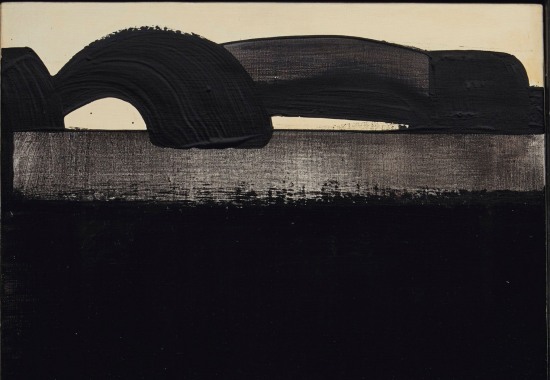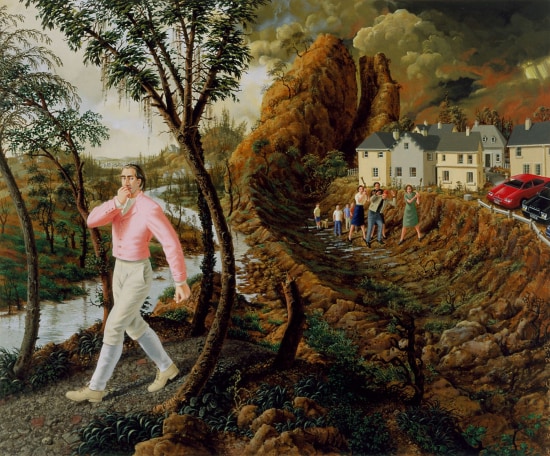
(1947 – 2000)
San Francisco-based painter, Robert Schwartz, exquisitely rendered narrative paintings highlight both the absurdity and pathos of the human condition. In the words of New York Times art critic Ken Johnson, "To look at a Schwartz picture is to peer through a window into a parallel universe." A Chicago native, Robert Schwartz adopted San Francisco as his home soon after he arrived in 1971. He had graduated from the Art Institute of Chicago the preceding year and was quickly taken up by Robert Glauber and members of ‘The Hairy Who.’ The emerging gay culture and the social upheaval of the 1960s counterculture provided ample fodder for Schwartz’s penetrating and psychological works in which he exposes both the individual’s and society’s deepest fears and desires.
Schwartz wrote that he "[invented] a world to reveal certain truths about being human." His diminutive paintings—they rarely measure more than 7 x 9 inches—consist of incredibly complex compositions that place individuals in realistic, yet highly inventive, environments and situations that are sometimes absurd or apocalyptic. Other themes include the arbitrariness of fate or the silliness of outdated social mores. Critic Donald Kuspit calls Schwartz a "postmodern realist," in that he is "a master at narrating paradox—his works are deceptively clear, as though to disclose the intrinsic connection of opposites by bringing their disconnection into sharp focus." Executed in gouache on paper or in oil on wooden panels, Schwartz's painstaking technique and meticulous detail is often described as a 20th century analogue to the craftsmanship and devotion evident in medieval illuminated manuscripts, such as The Book of Hours, and in 18th century French miniatures.
Schwartz received a National Endowment for the Arts WESTAF Award in 1992. In 2000 Seattle’s Frye Art Museum hosted a retrospective exhibition of Schwartz's work, following a 1990 survey at the De Saisset Museum of Santa Clara, California. Schwartz died unexpectedly in 2000, at age 54, of heart failure. In 2004 the San Jose Museum of Art held a retrospective and published a major monograph, "Dream Games: The Art of Robert Schwartz," by Barry Schwabsky and Susan Landauer.

Robert Schwartz
No, No
7.75 x 9.25
Gouache on paper
1996